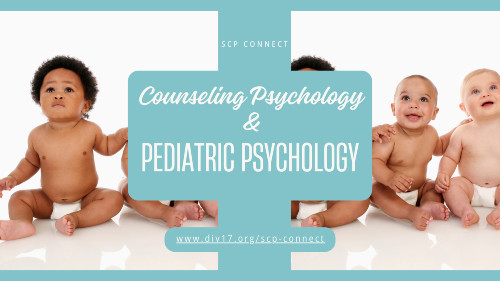|
Counseling Psychologists’ Role in Developmental-Behavioral PediatricsBy Ayla Goktan, 3/2/25 The number of psychologists, including counseling psychologists, who work in medical settings and academic health centers is quickly increasing. One sub-specialty for psychologists in medicine is developmental-behavioral pediatrics. In this article, I will review the roles of developmental-behavioral pediatricians and the psychologists who collaborate with them. What Is Developmental-Behavioral Pediatrics? Developmental-behavioral pediatrics is a relatively new medical subspecialty. It is much needed, given that about 17% of children have a diagnosed developmental disability, and the prevalence of autism spectrum disorder specifically is on the rise. General pediatricians who suspect or even diagnose a child with a developmental disability often refer the child to a developmental-behavioral pediatrician (DBP) for further diagnostic clarity and expertise. Referral reasons include:
Psychologists, including counseling psychologists, are an important part of an integrated health care team for children with developmental-behavioral concerns. Diagnosing these children can be a complex process that benefits from the expertise of both DBPs and psychologists. DBPs can attend to medical underpinnings for a diagnosis of developmental disability, including but not limited to:
Psychologists bring their own lens to the assessment and diagnosis of developmental disabilities, including:
DBPs and the psychologists who collaborate with them often work in hospitals and major medical centers. They will see a child at least one time for initial assessment, and the frequency of follow-ups to track progress will vary by case. While most medical subspecialties include patient treatment, developmental-behavioral pediatric patients receive the bulk of treatment and interventions in the community. This treatment can include the early intervention services available in every American state until a child is three years old, therapies provided in the school system as part of Individualized Education Programs or IEPs, and private therapies provided at clinics in the community. Bringing Counseling Psychology Values to Developmental-Behavioral Pediatrics Working with children with developmental disabilities is aligned with the values of counseling psychology. For example, counseling psychologists strive to attend to individual and community strengths, have a prevention focus, acknowledge systemic oppression, and bring a social justice lens to their work. Counseling psychologists can live out these values while working with these families, including by:
Future Directions Future counseling psychologists who are interested in child assessment should consider a career in developmental-behavioral pediatrics. There are not enough DBPs to meet current needs, nor are there enough psychologists in DBP settings. Working with children with developmental disabilities and their families is a great opportunity for counseling psychologists to serve an underserved population and live out the values of counseling psychology.
|



 Ayla Goktan (she/her) entered her fourth year of the University of Louisville Counseling Psychology PhD program in Fall 2024. Her salient identities include being a Turkish-American heterosexual cisgender woman who grew up middle class. Ayla is interested in health psychology and psychotherapy training research and working with children and families in medical settings. She is a member of the American Psychological Association (including APAGS, Division 17, and Division 54) and the Kentucky Psychological Association. In her free time, she runs, writes poetry, plays the flute, and spends time with loved ones.
Ayla Goktan (she/her) entered her fourth year of the University of Louisville Counseling Psychology PhD program in Fall 2024. Her salient identities include being a Turkish-American heterosexual cisgender woman who grew up middle class. Ayla is interested in health psychology and psychotherapy training research and working with children and families in medical settings. She is a member of the American Psychological Association (including APAGS, Division 17, and Division 54) and the Kentucky Psychological Association. In her free time, she runs, writes poetry, plays the flute, and spends time with loved ones.